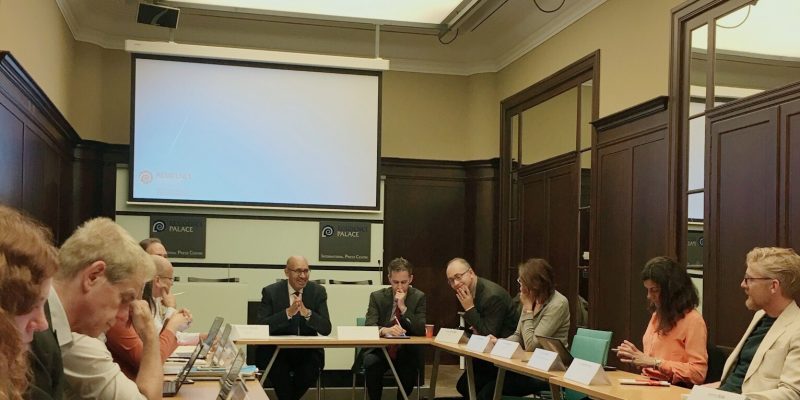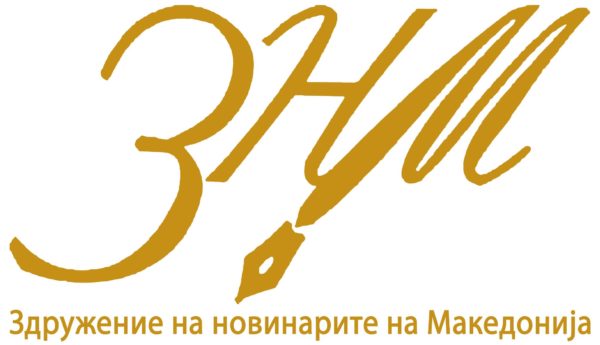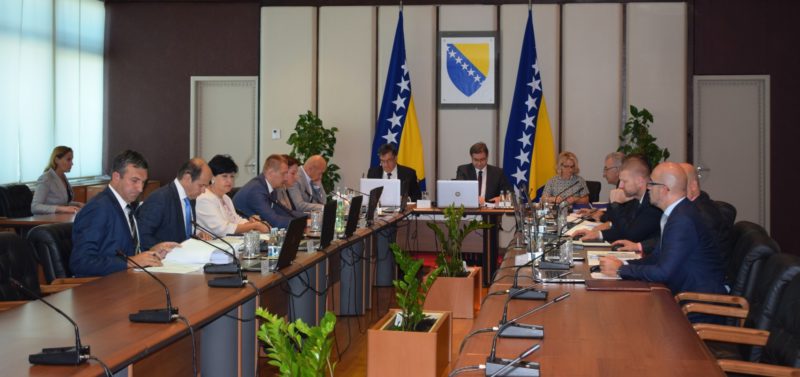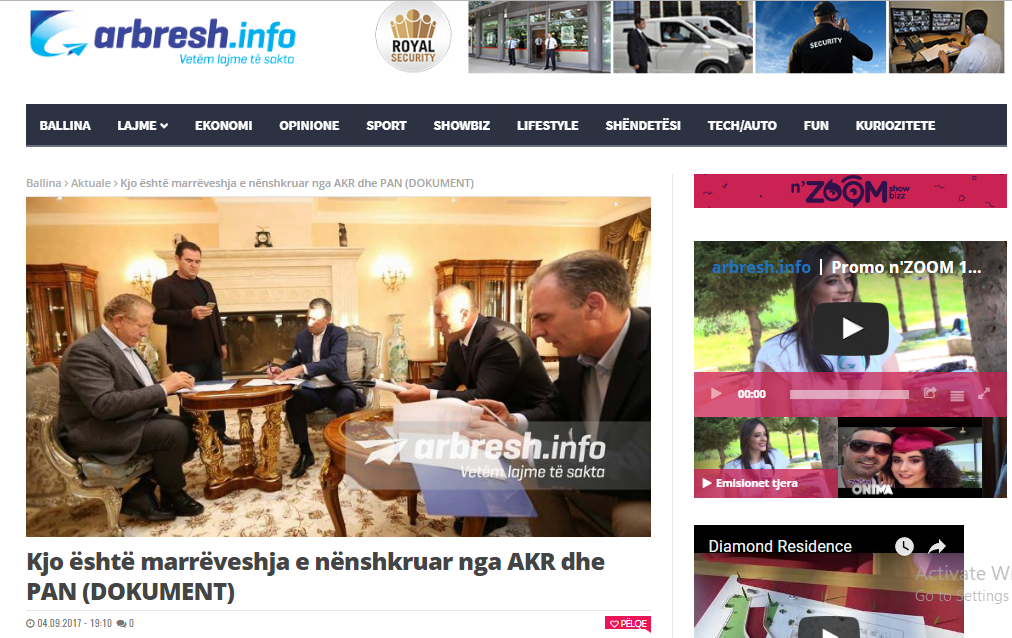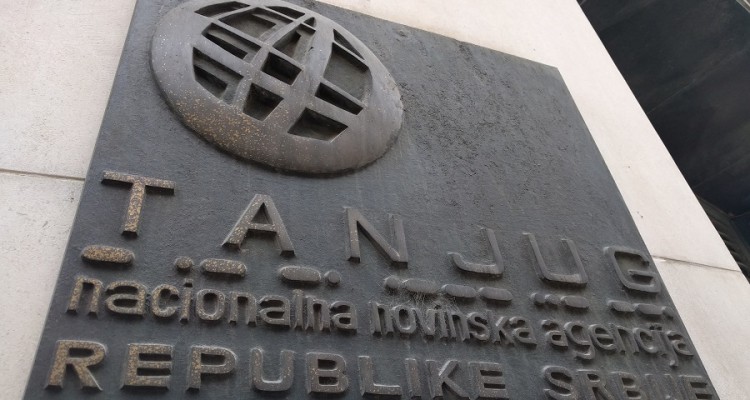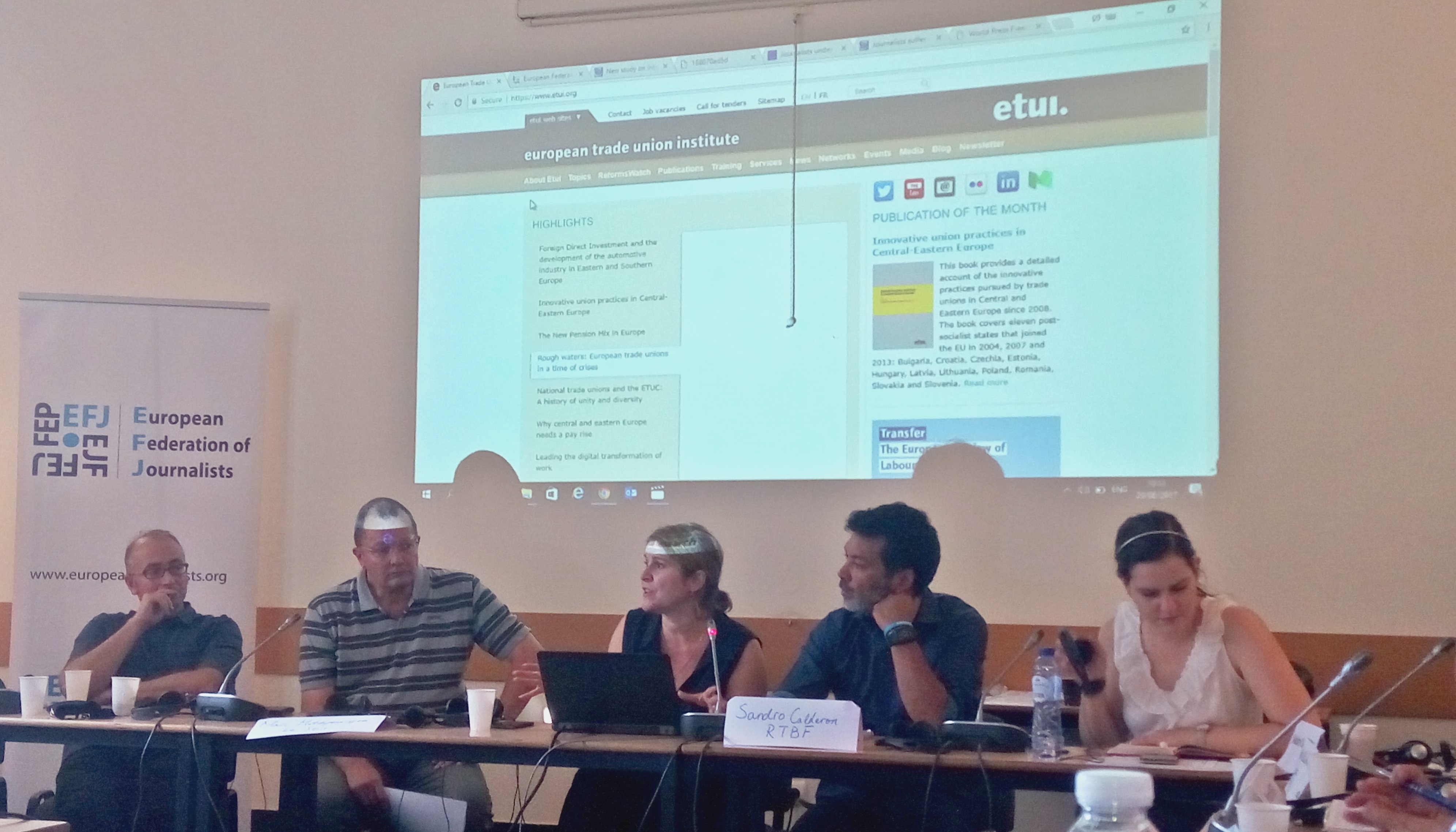BRUSSELS, 07.09.2017. – A coalition of international journalist and media freedom organisations, as well as intergovernmental institutions have gathered in Brussels on 5 September under the initiative of Harlem Désir, the newly appointed OSCE Media Freedom Representative, and the European Federation of Journalists (EFJ) to discuss challenges and develop new ideas for cooperation to defend media freedom across Europe. The attended organisations included Access Now, Article 19, Association of European Journalists, Committee to Protect Journalists, European Federation of Journalists, European Digital Rights, IFEX, International Federation of Journalists, Index on Censorship, International News Safety Institute, International Press Institute, PEN International, Reporters Without Borders as well as David Kaye the UN Special Rapporteur on the promotion and protection of the right to freedom of opinion and expression.
Opening the round table discussion, Mr. Désir expressed his commitment to work with journalist organisations and media freedom groups to defend an increasingly challenging media freedom landscape in the 57 OSCE participating states. He outlined the key priorities and mandates including the safety of journalists, combating impunity, countering propaganda disinformation and fake news, counter-terrorism measures, freedom of expression, media pluralism and regulation.
Ricardo Gutiérrez, EFJ General Secretary, said, ”Facing with the increasing attacks on journalists and the precariousness of the profession, it is becoming ever more important for journalists’ organisations and media NGOs to build stronger coalition in order to counter the enemies of media freedom.”
Gutiérrez highlighted the media freedom situation in Turkey with 157 journalists arrested including the recent arrest of French journalists Loup Bureau.
The case of arrested journalist Hamza Yalçin in Spain, the declining media freedom in Ukraine, Poland, Hungary, Russia, the continuing state of emergency in France and Turkey, the ongoing media crackdown in Azerbaijan, the new surveillance laws in France, UK, Germany, the digital security and the role of public and private media actors were among the issues discussed between civil society representatives and Désir.
Participants pointed out the implementation gap among OSCE participating states in enforcing media freedom and the lack of political willingness to improve the situation. Faced with the challenge, participants focused the discussion on finding new ways and cooperation with a wide range of stakeholders including journalists’ organisations, media freedom groups, members of the public, inter-governmental organisations, European institutions and technology companies.
In particular, there is an urgent need to rebuild trust in the media especially among members of the public through more engagement.
The meeting ended in good spirit with renewal commitment from the attended organisations to further the cooperation in the future.


